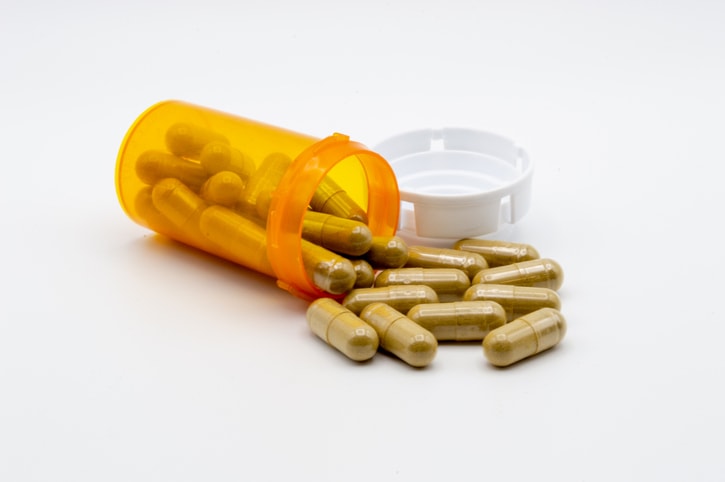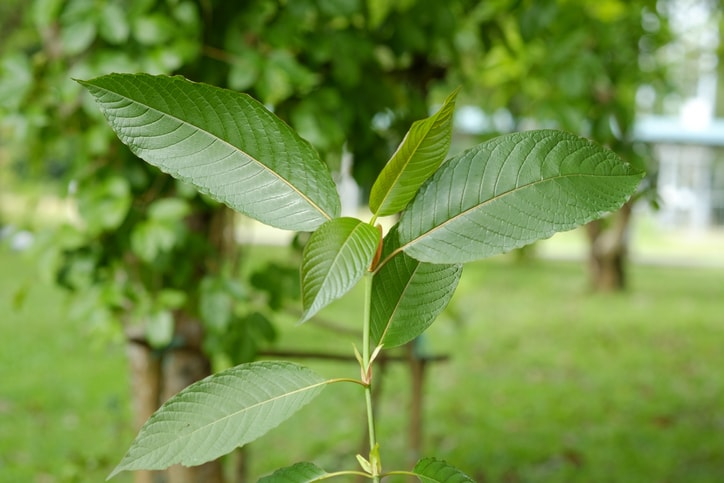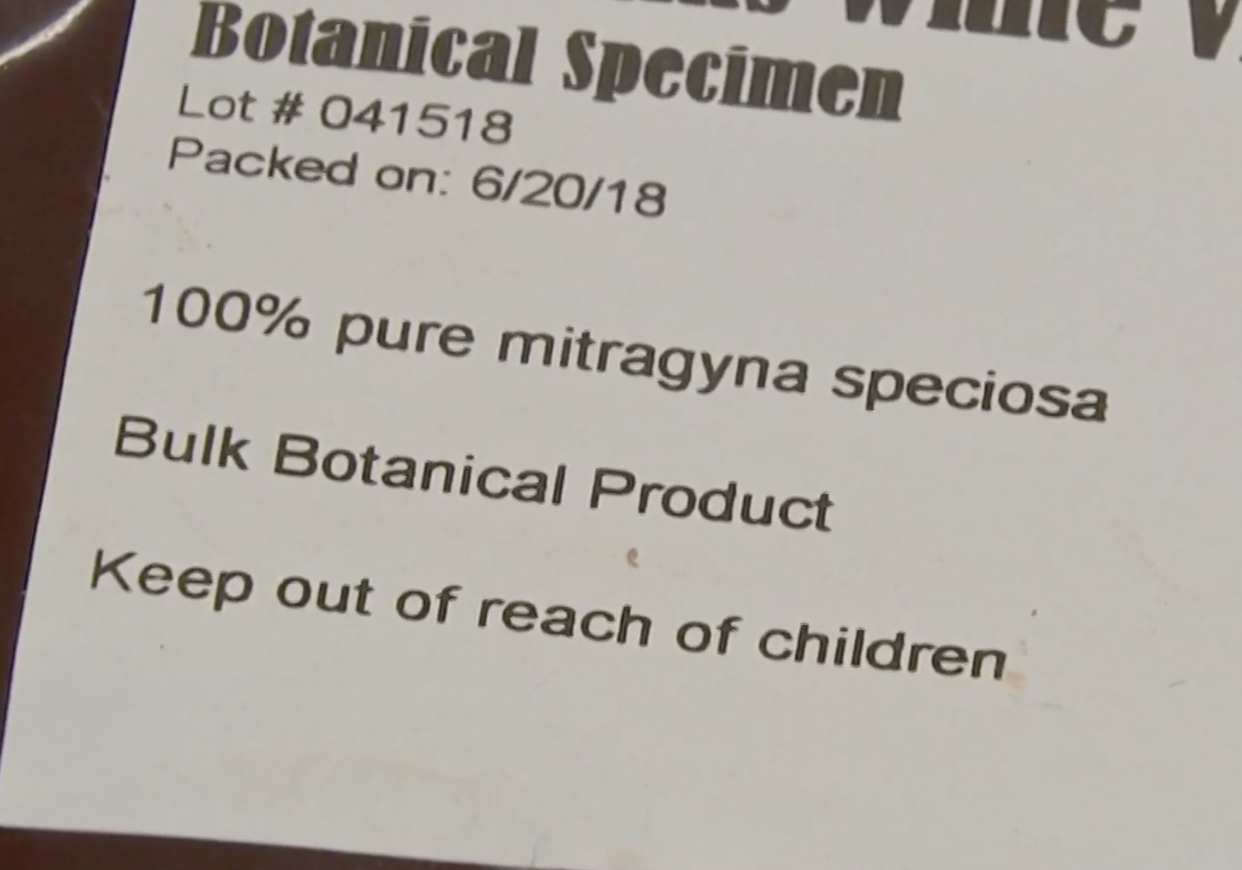
SKIP TO:
Makers and distributors of a popular natural supplement that has been deemed harmless by many are receiving stern warnings from the FDA regarding its connection to several deaths.
As many as 152 people have died in less than two years after using an herbal extract known as kratom, the Centers for Disease Control reports. As kratom’s popularity increases, so does the controversy surrounding it. The plant has recently gained attention in the U.S., though it has been used for centuries in other parts of the world.
Debate about kratom’s safety is thriving around the claim that it works as a benign solution to opioid addiction withdrawal symptoms. An entire online community asserts its noble benefits, passionately defending its legality and credibility. However, research is still limited and no reliable evidence has been produced to support these claims.
How has the same substance that many Americans tout as life-saving also been labeled as a serious threat by government officials? Read on to learn more about why many are divided on kratom’s safety.
Has Kratom Been Recalled?
Kratom has not been recalled except for certain lots and manufacturers after a salmonella outbreak sickened hundreds of users in April 2018. Roughly 200 people across 41 states were infected. Still another salmonella contamination prompted a voluntary recall in March of 2019.
Today, kratom is still available for purchase online and at local retailers in most states. The U.S. does not currently regulate the product’s sale or use. Only a handful of cities and states have banned it, including Alabama, Arkansas, Indiana, Vermont, Wisconsin and recently, Arizona. Ironically, kratom is now illegal in several countries worldwide – including Malaysia and Thailand, where it was formerly used for hundreds of years.
What is Kratom?
Kratom (Mitragyna speciosa) is a tropical tree belonging to the coffee family that is native to Southeast Asia, where farmers and manual laborers have used it for centuries as a natural energizer. The plant is harvested for its leaves, which contain powerful naturally-occurring chemical compounds called alkaloids. These alkaloids – mitragynine and 7-hydroxymitragynine – have strong physiological effects on the brain. Their effects are so strong, in fact, they are similar to those of opioids morphine, codeine and hydrocodone.
Other names for the herb include mitragynine extract, biak-biak, cratom, gratom, ithang, kakuam, katawn, kedemba, ketum, krathom, krton, mambox, madat, Maeng da leaf, Nauclea speciosa, nauclea and thang.

Is Kratom an Opioid? The FDA Says Yes
The FDA continues to warn the public that the health claims promoted by kratom distributors and those who rely on it are unsubstantiated and dangerous. This is particularly true when viewing the substance as a harmless replacement for prescription opioids. Scientific analysis has revealed that kratom contains opioid properties and has similar effects on the human body, putting users at risk for dependency.
In fact, former FDA Commissioner Scott Gottlieb shocked and angered the kratom community when he issued a statement labeling the substance as an opioid itself last February:
“Kratom should not be used to treat medical conditions, nor should it be used as an alternative to prescription opioids. There is no evidence to indicate that kratom is safe or effective for any medical use. And claiming that kratom is benign because it’s ‘just a plant’ is shortsighted and dangerous. After all, heroin is an illegal, dangerous, and highly-addictive substance containing the opioid morphine, derived from the seed pod of the various opium poppy plants.
Further, as the scientific data and adverse event reports have clearly revealed, compounds in kratom make it so it isn’t just a plant – it’s an opioid.”
This statement confronts the many purported safety claims about kratom.
To date, the FDA has not approved kratom and has been closely following it for years after an import alert back in 2012. Import alerts allow the FDA to seize goods before they have a chance of being distributed if they have reason to believe the product is in violation of public health safety standards. Since then, a number of import alerts have been issued on kratom products, but it is still not regulated in the U.S.
Is Kratom Safe?
Although 152 fatalities have been linked to kratom after tests, it is unknown which other substances were used at the time of death. In the CDC analysis, 80% of those tested also had a history of substance abuse and almost all tested positive for the presence of other substances, such as fentanyl. Seven had only kratom in their systems, according to toxicology reports.
This does not rule it out as dangerous, however. What is clear is that scientifically proven information and the long-term effects of kratom are lacking. Still, it continues to be sold under unsupported marketing claims that could have serious consequences for uninformed users.
Until distributors and manufacturers recognize and observe the evidence showing kratom’s risks, millions of people are vulnerable to potentially serious harm – including death.
Even though kratom is a legal substance according to the Drug Enforcement Administration (DEA), it has been on its list of concerning drugs since 2011.
This video from ABC Southwest Florida details more about why the supplement has not been banned by the DEA in spite of the number of deaths linked to it:
If you have questions about who may be responsible for an injury or harm to a loved one after using kratom, please contact The Oshman Firm for further details.
Who is Responsible if Someone is Hurt by Kratom?
Wrapped in the dispute about kratom’s safety is the question about who can be held responsible if someone is hurt or dies after using it. Put simply, many vendors do not warn their patrons about potential risks associated with kratom because they do not acknowledge them. This failure to warn can carry serious legal repercussions.
For example, a recent lawsuit filed by a 25-year-old California man’s family this March is pursuing SoCal Herbal Remedies, a kratom distributor based out of Big Bear, California for the death of their son. Caleb Sturgis suffered a heart attack while driving to work one morning after drinking kratom tea. The lawsuit alleges that the product was sold to him without warnings or instructions.

The label on the kratom product used by Caleb Sturgis.
In another lawsuit filed last year, a mother is alleging a Florida tea bar who served kratom to her daughter over the span of four years is responsible for the teen’s brain damage.
The rift between retailers and federal agencies like the FDA becomes clear when many of these companies neglect to warn customers of the potential dangers that have been linked to the popular remedy. Distributors, manufacturers or those in connection with kratom sales can all be held liable for failing to warn consumers of the safety, contraindications and health risks associated with it.
How to File a Kratom Lawsuit
Did you or a loved one use kratom and suffer serious effects such as seizures, cardiac arrest, brain injury or other harm? Perhaps you are concerned that it may have been involved in causing the death of a loved one.
If you have questions about filing a lawsuit, The Oshman Firm is available to answer your concerns for free. Simply contact us or call us directly at (800) 400-8182 today. All calls are free and confidential. We will assess your potential for filing a legal complaint with a kratom distributor, manufacturer or other party in a no-obligation consultation.
The Oshman Firm understands the law surrounding drugs and dangerous substances. We have over 35 years of experience successfully securing favorable verdicts and settlements on behalf of injured consumers against billion dollar corporations. We have the time and resources to handle your potential case. Please contact us today to learn more.
